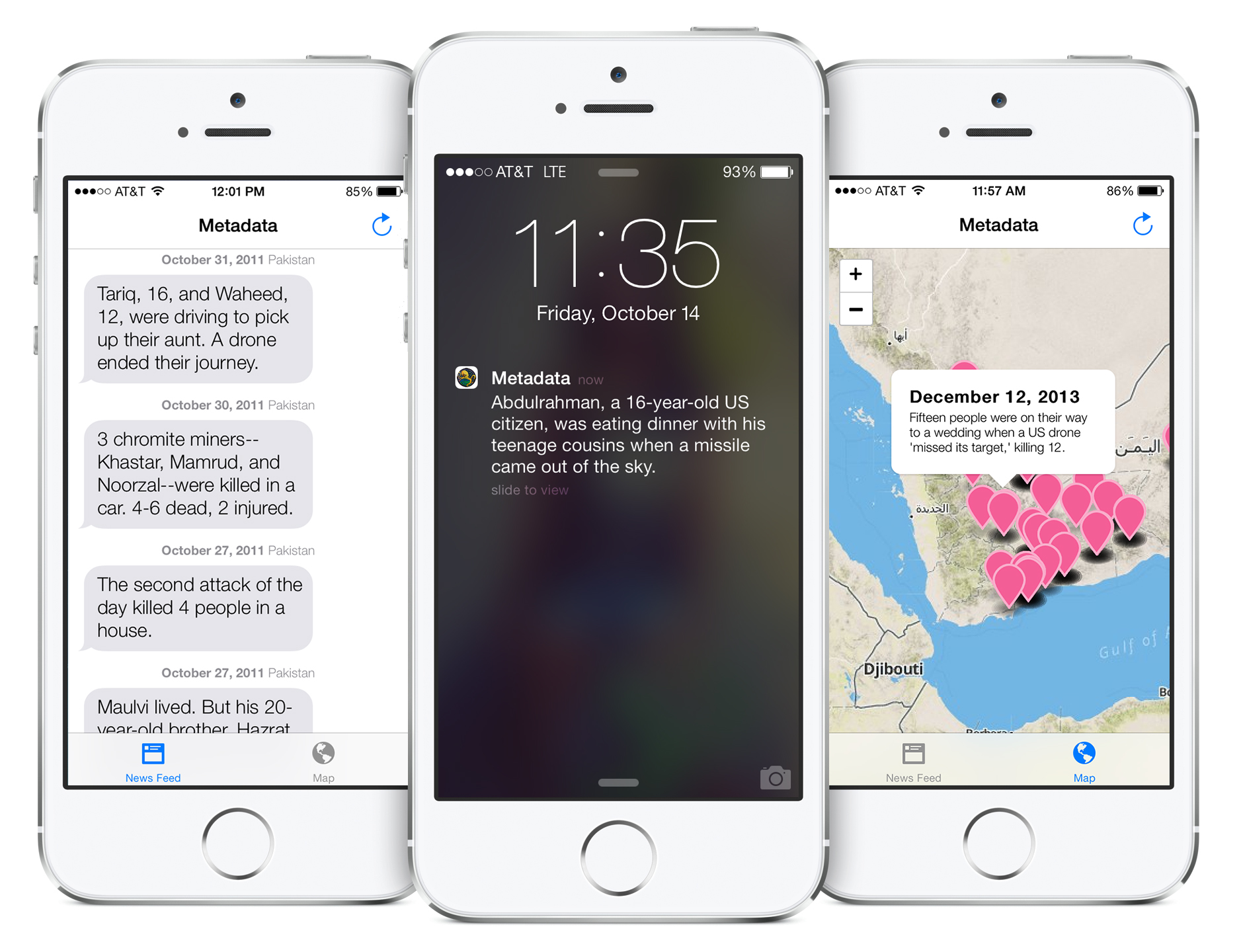|
|
Archive - Feb 2014
Awareness
 This guy made an IOS app that keeps you apprised of all (well, really just some) of the horrible shit the U.S. is doing abroad. Pretty great. Brings up some deeper thoughts - what if you really could every moment know everything bad being done to people? Like the enlightened bohdisatvas that can sense people suffering on the other side of the world when a tsunami happens. except you're not enlightened if it's just your phone telling you. you're just overwhelmed. would you just go completely insane? when and how would you start going something to stop some of it? or would you just work on shutting off the stream of data?
This guy made an IOS app that keeps you apprised of all (well, really just some) of the horrible shit the U.S. is doing abroad. Pretty great. Brings up some deeper thoughts - what if you really could every moment know everything bad being done to people? Like the enlightened bohdisatvas that can sense people suffering on the other side of the world when a tsunami happens. except you're not enlightened if it's just your phone telling you. you're just overwhelmed. would you just go completely insane? when and how would you start going something to stop some of it? or would you just work on shutting off the stream of data?
Rainbows End

author: Vernor Vinge
name: Steev
average rating: 3.72
book published: 2006
rating: 4
read at: 2014/02/01
date added: 2014/02/01
shelves: own-it, fun, novels
review:
Vinge is always one of the best writers at realistically depicting what the near future will really look like, at least in terms of information technology. This book posits a 2025 that seems pretty plausible to me. Given that Google Glass will be rolling out now, in 2014, and will probably get super popular pretty promptly, I don't think it's too outlandish to predict that we'll have information displays built into contact lenses in another 10 years, plus wearable computers controlled by minute gestures. Add to that extrapolations of the trends in entertainment, social networking, surveillance and nationalistic security apparati, and you get a future that Vinge paints as the world a famous poet finds himself in after he comes back from Alzheimer's, cured but not quite, by medical breakthroughs. As usual, this isn't great literature, but the writing isn't as bad as most science fiction, and there's some interesting and touching character development that makes it a bit more than a futurist manifesto.

